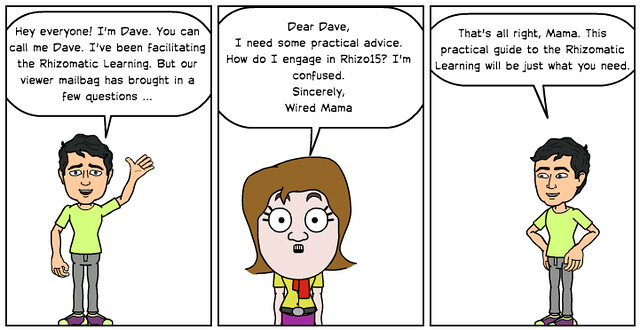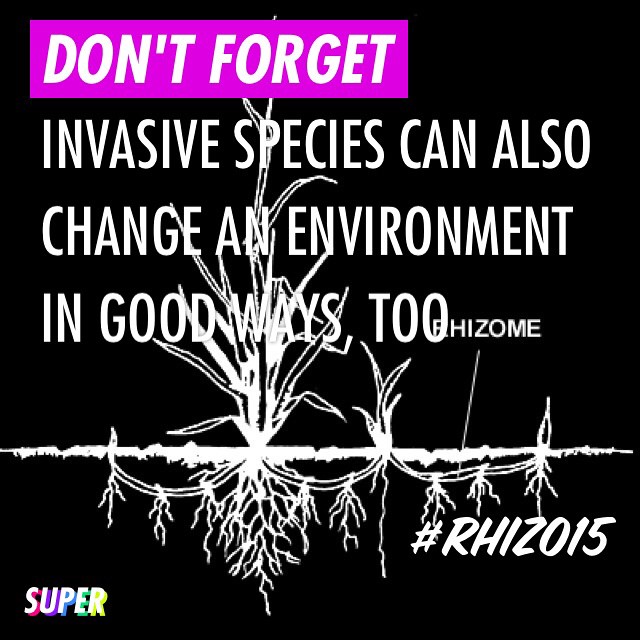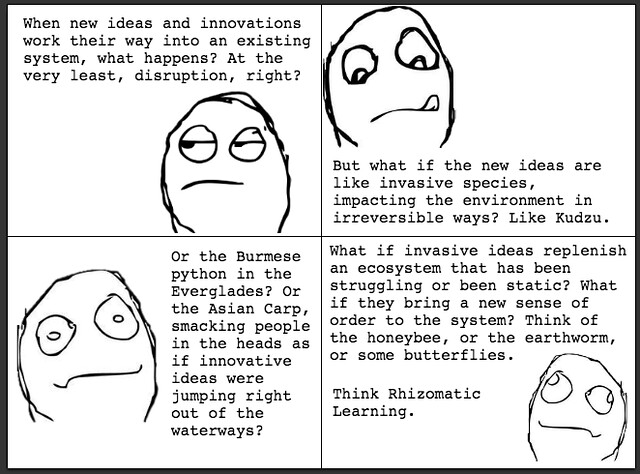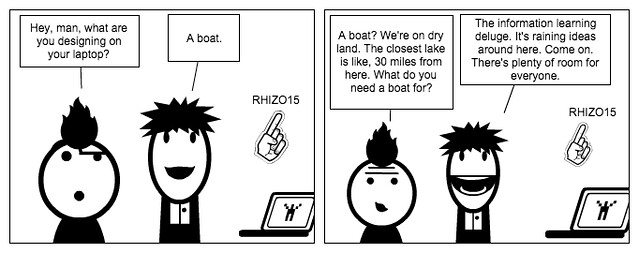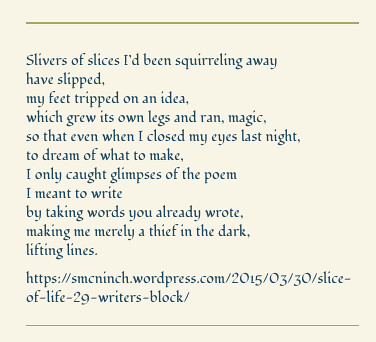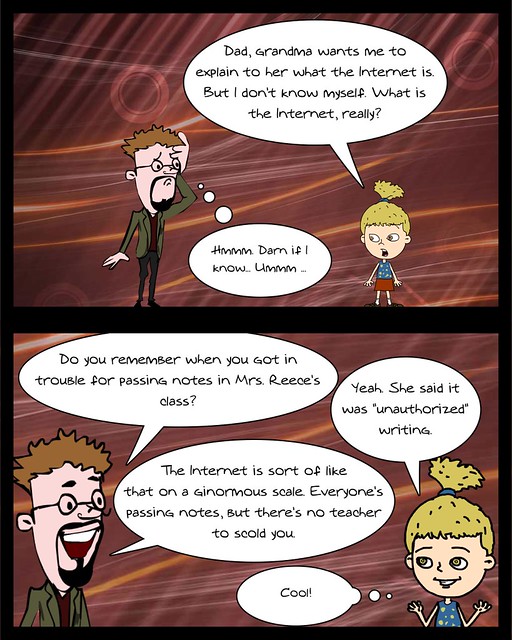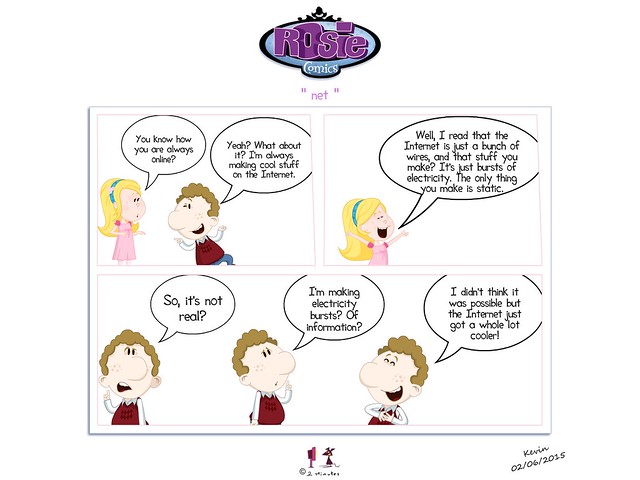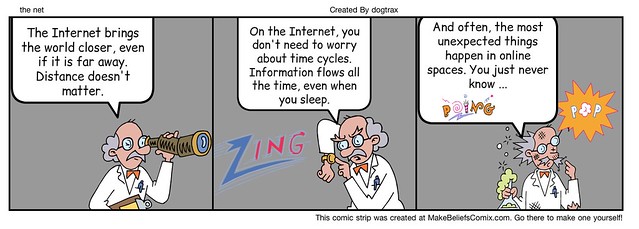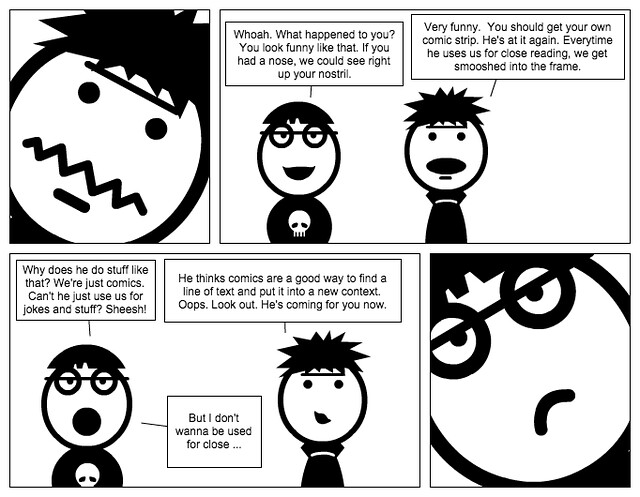
Allow me a brief detour here …. as some of you may know, I like to make comics as a way to zero in on blog posts and tweets in online learning adventures that I am part of. It began with the Making Learning Connected MOOC, then extended into Connected Courses, and now is part of my routine with Rhizomatic Learning. My aim is to find the anchor or kernel of idea that intrigues me, and extend it out in a visual way with a comic.
My hope is that the writers of the material don’t get offended, and I try very hard to make sure the satire or humor is not directed at the writers themselves. But humor and satire are definitely part of my intention, as is the hope that I might, in my own way, open up the doors to the power of comics as a medium of expression and to inject a little levity into some very serious pedagogical discussions.
Plus, I find it fun.
So, I thought I might walk through the process of how I found a typical post, what I discovered as I read, and how the comic itself eventually came together. I’ll use Will Richardson as my example, if only because I have followed Will for years, read and been inspired by his books, and suspect he won’t mind if I reference his blog post that led to a comic. (Thanks, Will, in advance).

Will entered the Rhizo15 stream a few weeks in, which is fine and “right on time” but that can be disorientating to the late-comer, I think, as you try to figure out, what the heck are they talking about? What can I contribute? Where is this thing going? Will’s post — entitled Learning with #Rhizo15 — was thoughtful, as usual, and centered on the difficulty of finding your footing in a “course” like Rhizomatic Learning, where there is no set curriculum map, no established center space, no direction on your learning other than what you bring to the table for yourself.
I was really intrigued by his list of things that can make an open learning experience “hard.”
Will writes:
- It’s hard because no one’s telling me what to read or when to read it.
- It’s hard because there’s no one text, no central collection place for ALL the associated thinking with the course.
- It’s hard because I worry about what I’m missing.
- It’s hard because there are no due dates.
- It’s hard because I don’t know if I’m doing it “right.”
- It’s hard because despite the fact that I’ve been learning online informally for almost 15 years, I still have a lot of “old school” baggage built in when I hear the “course.” (By the way, if you want a lesson in how long it takes to unlearn old habits, watch this.)
That line about “old school baggage” resonated with me and I decided that was the line that I would use to represent this idea of our expectations of a learning experience clashing with an open educational space, and how our brain seeks to make sense of something new even as the old framework creates a certain sort of tension.
So, this is the line I took from Will (and added a word — word — for context):
I still have a lot of “old school” baggage built in when I hear the (word) “course.”
I use different comic platforms at different times, but I was on my iPad and so turned to my favorite comic app called Comics Head, which gives a lot of flexibility for creating comics. I also use a site called Stripgenerator on the computer, or Bitstrips, sometimes, too. I’ve also been know to pull up Dave’s Rage Maker Comics from time to time. I guess I am all over the place, but each gives a different feel and different compositional possibilities.
With Will’s words in hand, I started to consider what the comic would look like and what I wanted to say. You see, my aim with comics is to add some of my own perspective — to riff off the original writer, where the comic is the comment.
I thought that a background of a traditional college would make sense, with someone (a stand-in for Will, but really a stand-in for all of us) at the front door, wondering where the classroom is and referencing Professor Dave. (Hint: there is no classroom, and Dave Cormier is the facilitator but he lets things go their own way). Will’s quote is plastered up on the wall, like graffiti or something. (Hide the paint can, Will). I actually struggled with where to put the text, from a design standpoint, because the background is a bit too busy. The wall seemed ripe for defacing, so to speak.
I struggled with how to represent the open quality of #Rhizo15 in contrast to the university. At first, I had student faces in the windows, heckling the visitor, like those old guys from the Muppets. I didn’t like that, though, as it felt a bit mean. I don’t want to be mean-spirited here.
Then, I thought: what if the gathering of the Rhizomatic Learning Swarm (ie, those working together in the community, with the “swarm” term coming from folks like Keith Hamon) is outside the frame of view itself, and the text boxes are calling the visitor to avoid the building altogether? We don’t ever “see” the #Rhizo15 learners .. which is mostly true, anyway. We are defined by our writing and our media in social media spaces.
I then realized that a cool juxtaposition would be the element of an elementary school — the playfulness of a playground, and the metaphor of a sandbox, and the open invitation to come join in the fun and exploration. I like that dichotomy of the friendly invitation to play and explore and the rather imposing image of the school building. The final touch was the labeling of the building as “Typical University” to indicate how untypical the Rhizomatic Learning experience is (but should not be).
Here are a few more comics from the weekend:

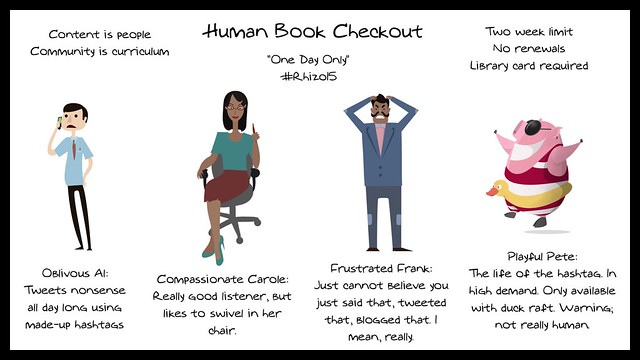
Peace (under the hood),
Kevin
PS — This comic/close read anatomy exercise is inspired by the YouShow project a few months ago, when Alan Levine and others were pushing folks to make their process and thinking more visible.
